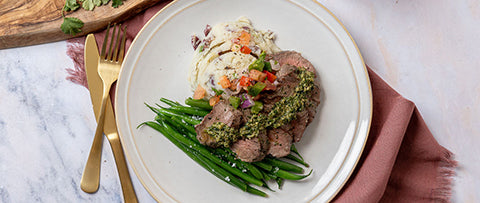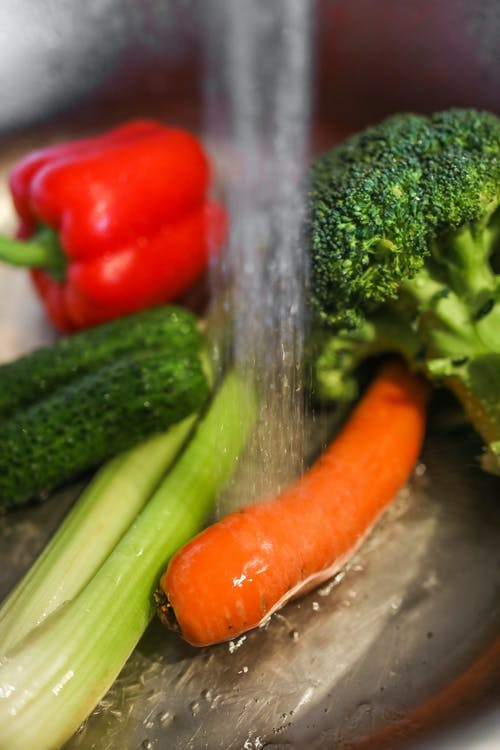It's Wednesday, and those grapes you bought from the Farmers Market on Sunday afternoon are already starting to look like raisins, annoying! Did you know if washed, throughly dried, and stored properly in the fridge in an airtight container, grapes could last up to 3 weeks?
Improper storage of fruits and vegetables is not only frustrating, but it is one of the top 3 reasons for the crazy amount of food waste in the US. Learning how to properly store your produce is a game changer because it can actually double the life of your fresh fruits and veggies.
Here are some tips to help you get the most out of your produce by proper storage:
Clean and dry short term produce only
When you get home with a large amount of fresh produce, it can be tempting to clean everything for the sake of time and convenience. However, cleaning some fruits and veggies without the intention of using them within the next couple of days can actually do more harm than good as excess moisture can result in quicker spoilage.
Clean and thoroughly dry produce that you are going to use within the next 48 hours. For produce that you wont be eating so soon, keep them whole, unwashed, and stored at the proper temperature until you are ready to use them.
Store at proper temperature
Storing your fruits and vegetables at their proper temperature is essential when extending shelf life. Some fruits and vegetables such as watermelon, onions, and potatoes are best stored in a cool dark place like the pantry or cellar because exposure to light can actually cause them to spoil faster.
Certain fruits such as avocados, cantaloupe, honeydew, peaches, plums, and pears are best stored on the counter away from heat and light until they ripen, then moved to the refrigerator. These fruits will not ripen fast enough in the refrigerator so it is important to let them ripen on the countertop first for the best flavor, then store in the refrigerator to extend shelf life.
On the other hand, fruits and vegetables such as cherries, grapes, berries, broccoli, celery, and corn should be stored in the refrigerator because cool air slows down the ripening process and allows them to last longer.
Store fruits and vegetables apart
Some fruits such as apples, bananas, and pears give off ethylene gas, also known as the "fruit-ripening hormone." All fruits have some level of ethylene gas, however, some fruits produce more when they begin to ripen which not only changes the texture and flavor of the fruit but it can affect surrounding fruits and vegetables if they are stored too close.
Some fruits can also absorb the odors from vegetables such as onions and garlic which can affect their flavor.
Store in proper container
Storing your produce in the proper container is just as important as storing them at the proper temperature. For produce needs to be stored at room temperature, air circulation is essential so they are best stored in a paper bag, perforated plastic bag, or bowl on the counter.
Most refrigerator friendly produce should be stored in a sealed container in the refrigerator; Ziplock bags, reusable silicone pouches, and containers with tight fitting lids are best. These containers seal in moisture which prevents produce from dehydrating. Sealed containers can also protect fruits and vegetables from ethylene gas.
Now that you have some tips and knowledge on how to properly store produce, below is a little cheat sheet with some popular fruits and vegetables and their proper storage;
High ethylene producers: Apples, bananas, tomatoes, avocados, melons, pears, squash, mangos
Produce sensitive to ethylene: Broccoli, cabbage, cauliflower, leafy greens, lettuce
|
Produce |
Where to store |
Container |
Notes |
|
Apples |
Refrigerator |
Plastic bag |
Absorbs odors, avoid storing near onions & garlic and high ethylene producers |
|
Bananas |
Counter |
perforated or open container |
Avoid storing with high ethylene producers |
|
Pears |
Counter until ripe then refrigerator |
Perforated or open container then plastic bag |
Avoid storing with high ethylene producers |
|
Grapefruit & Oranges |
Refrigerator |
Perforated or open container |
|
|
Lemons & Limes |
Counter until ripe then refrigerator |
Perforated or open container |
Avoid storing in plastic bags and near high ethylene producers |
|
Berries |
Refrigerator |
Perforated container |
Avoid excess moisture |
|
Avocado |
Counter until ripe then refrigerator |
Sealed container |
Keep whole until ready to eat to prevent browning |
|
Lettuce |
Refrigerator |
Sealed container, unwashed |
Avoid storing with apples, pears, and excess moisture |
|
Broccoli & Cauliflower |
Refrigerator |
Sealed container |
Avoid storing near apples and pears |
|
Onions & Garlic |
Pantry (cool and dry) |
Perforated or open container |
Avoid plastic bags and storing in refrigerator |
|
Carrots |
Refrigerator |
Sealed container |
Avoid storing near high ethylene producers |
|
Potatoes |
Pantry (cool and dark) |
Perforated or open container |
Avoid plastic bags and storing in refrigerator |
|
Squash |
Pantry (cool and dry) |
Perforated or open container |
Avoid storing near bananas |
|
Cabbage |
Refrigerator |
Perforated when whole, sealed when cut |
Avoid storing near apples and pears |






